Dog insurance
Dog insurance helps us plan for unexpected vet fees and this is usually the reason we choose to insure our dogs. Dog insurance policies can also cover a range of other dog related risks including third party liability cover, recompense in the event of a dog’s death or loss, occasions where you are ill. The cover included in the veterinary fees can vary greatly between policies. Many offer only limited cover and their prices are proportionately cheaper. Unless we understand and are comfortable with the restrictions, the policy can disappoint when it comes to claiming.

As well as the type of vet fees cover, other key factors impacting the price of a policy include your dog’s breed, his or her age, where you live, and pre-existing health conditions.
To help you make informed decisions about whether to insure your dog and if you decide to do so, the right insurance for your dog, the following notes offer guidance and touch on some of the key factors you should consider when deciding which policy is right for you.
What factors will determine the cost of your dog’s insurance policy?
Key factors which influence the risk your dog represents to the insurer and the price they need to charge are:
- Breed – some breeds are more susceptible to specific conditions than others.
- Age – the risk of dogs becoming ill increases as they get older.
- Where you live – a veterinary practice’s pricing policy will be influenced by the local cost of living and the extent of treatment and procedures they are able to provide.
- Type of vet fees cover – the more restrictions and limitations in your dog’s cover the less the insurer will have to pay out and the cheaper the premiums. The level of excess will also affect the cost of insurance.
Considerations when choosing a dog insurance policy
- If you are going to insure your dog, do it as soon as possible. Your dog may be happy and healthy now, but insuring as early as possible reduces your risks if the dog falls ill before you take out insurance.
- Make the right choice the first time. Consider what you want from your policy, check the amount of cover is sufficient and that if your pet is ill or injured the vet’s fees cover will pay out for the things you expect it to – both now and as your dog gets older.
- Always read the small print. Study the Terms and Conditions – these are important and are normally available on their website or on request and will provide details of exactly what is and isn’t covered.
- Do NOT choose on price alone. Dog insurance policies do not all work in the same way. The type of vet fees cover is the biggest area of difference between policies and can affect the price. The main types of cover are explained later on.
- Do NOT just choose the highest vet fees benefit. The monetary amount is important but a high level does not necessarily mean better cover. Be certain of the type of cover you buy as this will determine how much and how long some conditions are covered for.
- If in doubt, ask! If you aren’t sure whether a particular policy will meet your needs, call the provider and ask – it is sometimes easier than picking your way through several different websites or the small print.
What type of vet fees cover is right for my dog and me?
Some policies, often the cheaper ones, offer more restrictive cover in terms of what they’ll pay for and/or how long they keep paying. It’s therefore important to understand what you are buying from the outset and that your chosen policy will really meet your needs now and in the future.
There are four main types of dog insurance generally available and to help you decide we’ve detailed what each one covers and for how long:
- Lifetime or repopulating cover. These policies are intended to provide cover for the lifetime of your pet with the monetary limit refreshing each and every year. This means that, as long as the policy is renewed each year and you pay the premiums, you will be able to claim up to the full monetary limit each year for accidents and illnesses for the rest of your dog’s life.
- ‘Per condition cover’ or maximum benefit policies. Per condition policies provide cover up to a certain monetary limit for each separate condition diagnosed. Once you start claiming for a condition you draw down on this monetary limit. As long as the policy is renewed you can keep claiming for that condition until the monetary limit is exhausted after which claims for that condition will be declined.
- 12-month time-limited policies. These (often cheaper) policies provide cover up to a certain monetary limit or period of time (whichever comes first) for each separate condition diagnosed. The time limit is typically 12 months for when the condition showed signs or was first treated. Once the monetary or time limit is reached further claims for that condition are excluded.
- Accident only policies. Tend to be much cheaper and are less popular as claims for illnesses are not covered.
Above all, REMEMBER that not all dog insurance policies are the same – as with most things, is that you tend to get what you have paid for. Shop with care to ensure you buy the cover you want and need.
Some other considerations
- Excesses. This is the amount you pay towards claims. There will usually be a fixed amount that will be deducted from claims for each condition. This may be deducted for that condition once in a dog’s lifetime, every year or every time you make a claim. Many policies have a percentage contribution toward the balance of a claim once the fixed amount has been deducted.
- What are age limits? Most policies have maximum age limits above which you cannot start a policy for your pet. As long as you have insured your pet before this age, most policies will offer to renew your policy annually for the rest of your pet’s life.
- Waiting Period. From starting your policy there must be a number of days before you can make eligible claims for illnesses (including your pet’s death). Typically, 10 to 30 days. If your dog suffers an illness during the waiting period that will not be covered. Waiting periods may also apply to some other benefits.
- What are pre-existing conditions? Pre-existing conditions are illnesses and injuries your pet has suffered before taking out a policy. Your pet insurance will not cover pre-existing conditions and you will not be able to claim for them should they reoccur or need ongoing treatment. So the younger your pet is when you insure him or her, the less likely any medical problems will have occurred.
Please note. If you start claiming or run out of cover for a specific condition with one policy and decide to switch to another policy, that specific condition will now be pre-existing (pre-dating the start of the new policy) and will be excluded on the new policy automatically. Choosing the right policy first time is therefore important.
Other benefits that may be covered
Alongside cost of veterinary treatment, however many policies also offer other optional benefits. These include:
- Third Party Liability. This cover protects you if your dog causes injury to someone or damage to property which you could be legally liable for.
- Advertising & reward if your pet goes missing. This benefit covers the cost of local advertising and offering a reward up to a certain monetary limit.
- Loss from straying or theft. In the event your dog is not found and after a certain period of time your policy pays their purchase price.
- Death. If your dog dies, this cover allows you to claim for his /her original purchase price up to a certain monetary limit. Policies tend not to pay if your dog dies due to a pre-existing condition or if they die of an illness over a certain age.
- Boarding Kennel Fees. In the event that you are rushed into hospital unexpectedly, the policy covers for the cost of kennelling or someone to look after your dog.
- Holiday cancellation. Some policies will pay for the cost of cancelling or cutting short your holiday if your dog unexpectedly falls ill and requires emergency, life-saving treatment or surgery.
- Overseas travel. An extension of cover whilst your dog is temporarily overseas. Things to consider – usually your destination must be a member of the PETS Travel Scheme, many policies do not extend Third Party Liability cover and there will be a maximum number of days or trips each year your pet can be out of the country.
Help support our life-changing work...
Imagine if everyday tasks were so challenging or physically demanding they affected your quality of life. For many people living with a disability of families with a child with autism, that is their reality. Now imagine if a specially trained four-legged friend could restore your, or your family’s, independence.
The demand for our services is high and we can’t help as many people as we would like to without more funding. Please help us continue making life-changing differences for people with disabilities through the power of expertly trained dogs.
Every contribution, whatever size, is important and helps us make a difference.

